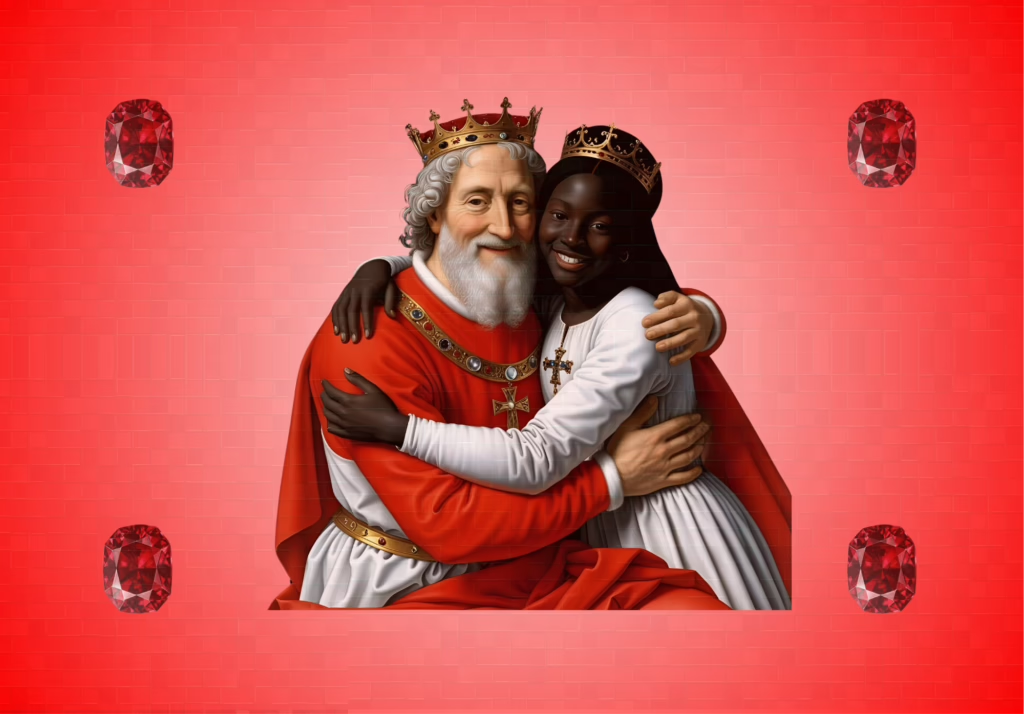The Alchemical Union

A few words for the alchemical union, here the mechanisms of reason do not run smoothly, in the territory where universal Reason pulses, this is horizon for those who have already experienced this knowledge in their hearts
Elder the West
smiling meets the young future
‘Et erunt duo in carne una’
‘And they shall be two in one flesh’ (Genesis 2:24)
in the end everything is held together by love and we could end the words here
Here is the culmination of the alchemical journey, where the King and Queen, Soul and Spirit, Sun and Moon, embrace in the ultimate light, that of the rubedo, the red work, black and white merge and in their union living gold is born
The Western King, old and steeped in knowledge, bears the memory of time, the Queen, young and black like the beauty of Africa, so old and so new, bears the promise of the future
united, they are the eternal present, their bodies intertwine like tree and sap, like word and flesh
Around them, rubies. Living stones, crystals of transfigured blood, coagula of inner work, symbols of perfection achieved after dissolution, of the beauty that blooms from sacrifice
‘Quod est inferius est sicut quod est superius, et quod est superius est sicut quod est inferius ad perpetranda miracola Rei Unius’ (Tabula Smaragdina)
This is the alchemical marriage, the sacred wedding, the ‘coniunctio oppositorum’ that Jung liked,
and let us not forget that the “coincidentia oppositorum” for Cusanus was divinity territory
no longer the struggle between male and female, but dance, no longer the time of war, but the time of embrace, the King and Queen are one, and in that unity the work is accomplished
Rubedo is transfiguring fire, it is passion ennobled, it is blood not of death, but of life, it is the incarnation of love that redeems, that fuses the human with the divine
‘I saw a new heaven and a new earth’ (Revelation 21:1)
The King and the Queen, the man and the woman, the work and the artist, the gold and the spirit, is fulfilled
and unity occurs only in the mechanism of love, but of that Love with which Dante closes the Comedy, ‘Amor che move il sole e l’altre stelle’ (Dante, Paradiso XXXIII)
Finis coronat opus

Leave a Reply